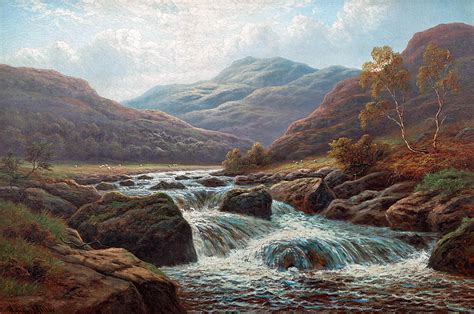A Quote by Miguel de Unamuno
Yes, yes, I see it all! — an enormous social activity, a mighty civilization, a profuseness of science, of art, of industry, of morality, and afterwords, when we have filled the world with industrial marvels, with great factories, with roads, museums and libraries, we shall fall exhausted at the foot of it all, and it will subsist — for whom? Was man made for science or was science made for man?
Related Quotes
Industrial Society is not merely one containing 'industry,' large-scale productive units capable of supplying man's material needs in a way which can eliminate poverty: it is also a society in which knowledge plays a part wholly different from that which it played in earlier social forms, and which indeed possesses a quite different type of knowledge. Modern science is inconceivable outside an industrial society: but modern industrial society is equally inconceivable without modern science. Roughly, science is the mode of cognition of industrial society, and industry is the ecology of science.
He who made us would have been a pitiful bungler, if he had made the rules of our moral conduct a matter of science. For one man of science, there are thousands who are not. What would have become of them? Man was destined for society. His morality, therefore, was to be formed to this object. He was endowed with a sense of right and wrong, merely relative to this.
No nation can be really great unless it is great in peace, in industry, integrity, honesty. Skilled intelligence in civic affairs and industrial enterprises alike; the special ability of the artist, the man of letters, the man of science, and the man of business; the rigid determination to wrong no man, and to stand for righteousness-all these are necessary in a great nation.
Oh, that's typical of you modern young men; you've nibbled at science and it's made you ill, because you've not been able to satisfy that old craving for the absolute that you absorbed in your nurseries. You'd like science to give you all the answers at one go, whereas we're only just beginning to understand it, and it'll probably never be anything but an eternal quest. And so you repudiate science, you fall back on religion, and religion won't have you any more. Then you relapse into pessimism...Yes, it's the disease of our age, of the end of the century: you're all inverted Werthers.
It is time to create new social science departments that reflect the breadth and complexity of the problems we face as well as the novelty of 21st-century science. These would include departments of biosocial science, network science, neuroeconomics, behavioral genetics and computational social science.
The well-educated young woman of 1950 will blend art and sciences in a way we do not dream of; the science will steady the art andthe art will give charm to the science. This young woman will marry--yes, indeed, but she will take her pick of men, who will by that time have begun to realize what sort of men it behooves them to be.
The life and soul of science is its practical application, and just as the great advances in mathematics have been made through the desire of discovering the solution of problems which were of a highly practical kind in mathematical science, so in physical science many of the greatest advances that have been made from the beginning of the world to the present time have been made in the earnest desire to turn the knowledge of the properties of matter to some purpose useful to mankind.
Many people correctly make the point that our only hope is to turn to God. For example, Charles Lindbergh, who said that in his young manhood he thought "science was more important than either man or God," and that "without a highly developed science modern man lacks the power to survive," . . . went to Germany after the war to see what Allied bombing had done to the Germans, who had been leaders in science. There, he says, "I learned that if his civilization is to continue, modern man must direct the material power of his science by the spiritual truths of his God."
Heidi Cullen had said that all of these local and cable weather forecasters who have been certified by the AMS, the American Meteorological Society, should be decertified if they refuse to accept the proven science of man-made global warming. There are numerous credible scientists, who have not been convinced that this is anything other than sunspot activity or normal cycles that the earth has gone through for billions and billions and billions and billions of years. Science can't prove man-made global warming, they simply can't, so they come up with this notion of consensus.
The science of logic never made a man reason rightly, and the science of ethics never made a man behave rightly. The most such sciences can do is to help us to catch ourselves up and check ourselves, if we start to reason or to behave wrongly; and to criticise ourselves more articulately after we have made mistakes.
Gradually, ... the aspect of science as knowledge is being thrust into the background by the aspect of science as the power of manipulating nature. It is because science gives us the power of manipulating nature that it has more social importance than art. Science as the pursuit of truth is the equal, but not the superior, of art. Science as a technique, though it may have little intrinsic value, has a practical importance to which art cannot aspire.







































